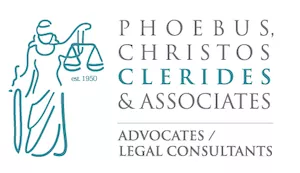Article 16(1) of Cyprus Contract Law (Cap. 149) describes that a contract is considered to have been concluded as a result of "Undue Influence" when the relations existing between the parties are such that one of them is in a position to dominate the will of the other and to benefit from this position by securing an unfair advantage over another.
One of the most important cases regarding Undue Infuence by the Supreme Court of Cyprus is that of Kefalas v. Kyriakou Nikola (2000) 1 JSC 1226.
Contracts voidable under duress are classified into two categories. The first category includes contracts in which there is no element of a special relationship between the parties. The second category includes contracts in which there is a special relationship between the parties. In the first category, undue influence must be factually proven event. In the second category, undue influence shall be presumed to exist and does not to be factually proven.
In a dispute, the Claimant can claim in the alternative that both categories exist. That is to say, that undue influence is presumed to exist due to a special relationship and or that it actually exist on the basis of the facts. In the end, there is no obstacle to proceed on the basis of both categories.
In the first category, where there is no special relationship between the parties, it must necessarily be positively proven, that the influence exercised by one party over the other was the decisive factor in the conclusion of the agreement, which would not have taken place but for the exercise of the undue influence. In this case, the party seeking to avoid the transaction has the burden of proving undue influence.
Alternatively in the second category, where the existence of undue influence is presumed due to the special relationship, the defendant, or the party in whom the trust has been placed, has the burden of proving that the one who trusted him and now seeks to rescind the contract or transaction, acted voluntarily in the sense that he was free and well informed to make an independent assessment of the usefulness of the contract himself. In some cases, the only way to rebut the presumption is to show that the party seeking to rescind the contract or transaction took independent advice before entering into the agreement and followed it, such as legal or other expert advice, or that the Claimant acted independently of any influence from the Defendant and with full awareness of the terms of the contract.
There are a series of recognised special relationships. But even outside these recognised relationships, if the plaintiff proves that at the time of the disadvantageous transaction a confidential relationship in fact existed between the parties, the presumption of undue influence will arise. This might include the relationship between a bank and customer.
In the second category, one must prove also that the disputed contract was "excessively onerous" upon the claimant and if successful, then a strong rebuttable presumption is created. That is, that the disputed transaction resulted from the exercise of undue influence. If these elements are satisfied, a legal status is created, the purpose of which is to prevent the extraction of a benefit belonging to the Claimant by the use of undue influence by the Defendant.
In Allcard v. Skinner [1887] 36 Ch.D. 145, with reference to the laws of equity, it was stated that:
"This is not a limitation placed on the action of the donor; it is a fetter placed upon the conscience of the recipient of the gift, and one which arises out of public policy and fair play."
It is apparent that undue influence, as a product of the law of equity, is not limited to circumstances of duress but has expanded to cover all such circumstances where there seems to be an abuse of trust. The concept of undue influence has never been precisely defined by case law and therefore there are no fixed or limited definitions. English courts, as followed by the Cyprus Courts, have described undue influence as some unfair and improper conduct, some coercion from outside, some overreaching, some form of cheating and generally, though not always, some personal advantage obtained by the guilty party (Allcard v. Skinner [1887] 36 Ch.D. 145).
The content of this article is intended to provide a general guide to the subject matter. Specialist advice should be sought about your specific circumstances.

